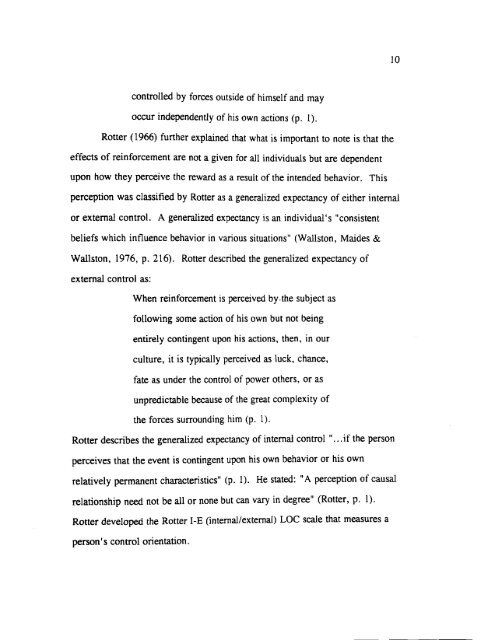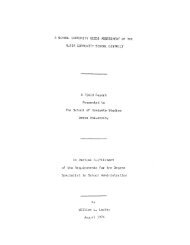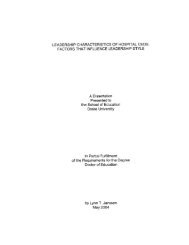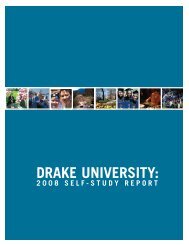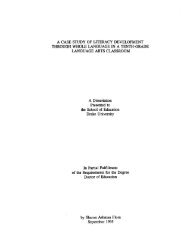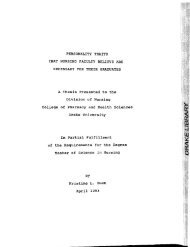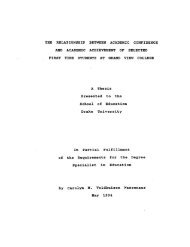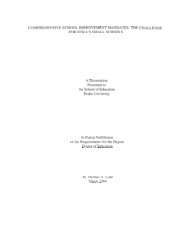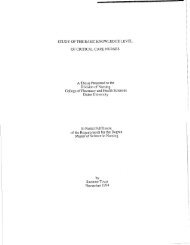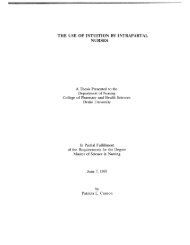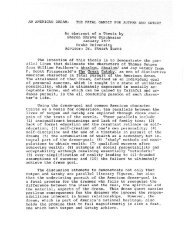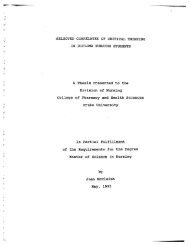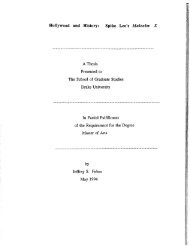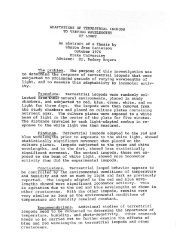LOCUS OF CONTROL ORIENTATION AND LEVEL - Drake University
LOCUS OF CONTROL ORIENTATION AND LEVEL - Drake University
LOCUS OF CONTROL ORIENTATION AND LEVEL - Drake University
You also want an ePaper? Increase the reach of your titles
YUMPU automatically turns print PDFs into web optimized ePapers that Google loves.
controlled by forces outside of himself and may<br />
occur independently of his own actions (p. 1).<br />
Rotter (1966) further explained that what is important to note is that the<br />
effects of reinforcement are not a given for all individuals but are dependent<br />
upon how they perceive the reward as a result of the intended behavior. This<br />
perception was classified by Rotter as a generalized expectancy of either intern&<br />
or external control. A generalized expectancy is an individual's "consistent<br />
beliefs which influence behavior in various situations" (Wallston, Maides &<br />
Wallston, 1976, p. 21 6). Rotter described the generalized expectancy of<br />
external control as:<br />
When reinforcement is perceived by4he subject as<br />
following some action of his own but not being<br />
entirely contingent upon his actions, then, in our<br />
culture, it is typically perceived as luck, chance,<br />
fate as under the control of power others, or as<br />
unpredictable because of the great complexity of<br />
the forces surrounding him (p. 1).<br />
Rotter describes the generalized expectancy of internd control " . . .if the person<br />
perceives that the event is contingent upon his own behavior or his own<br />
relatively permanent characteristics" (p. 1). He stated: "A perception of causal<br />
relationship need not be all or none but can Vary in degree" (R~tkr, P a 1).<br />
Ratter developed the Rotter I-E (internal/externd) LOC scale that nwasures a<br />
person ' s control orientation.


